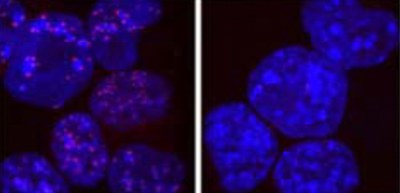
Super-sensitive auxin-inducible degron system makes easy to investigate physiological functions of proteins
A group of researchers from Nagoya University, its Institute of Transformative Bio-Molecules (ITbM), and Osaka University has established a super-sensitive auxin-inducible degron (AID) system, a tool to rapidly degrade the target protein of interest by incorporating the synthetic auxin derivative and its high-affinity-binding partner.
Proteins are needed to maintain life. To understand the function of a specific protein found in an organism, it is useful to study the phenotype, observable characteristics of the organism. Phenotype is determined by its genotype, the set of genes the organism carries. Thus, removing target proteins to suppress the protein function using the AID technology is useful to study protein function in living cells. However, since there are genes necessary for cell proliferation, if these gene are lost, cells cannot proliferate, making difficult to analyze protein function.
Thus, to examine the functions of such genes, systems to rapidly induce degradation of target proteins (or gene products) are used. The AID system has been used as a Targeted Protein Degradation (TPD) to achieve knockdown of target proteins within cells, which rapidly induces target degradation. In the AID system, the natural auxin indole-3-acetic acid (IAA) has been used as an AID inducer.
The AID system, which allows for rapid and reversible degradation of target proteins in response to auxin and enables to generate efficient conditional mutants of essential proteins in yeast as well as cell lines derived from human cells, has offered a powerful tool to control protein expression and study protein function. However, the relatively high concentration of auxin is required to induce degradation in animal cultured cell, which causes damage to cells.
In this study, the research group established an AID system with higher sensitivity than the conventional system in order to reduce the AID inducer concentration. Utilizing an engineered pair consisting of a synthetic auxin and a modified Transport Inhibitor Response1 (TIR1), both of which had been developed at the ITbM, the researchers developed the super-sensitive AID system. It has a 1000-fold reduction of the AID inducer concentrations and can induce degradation at 1000-fold lower than that of the conventional AID system, thus suppressing the cytotoxicity of auxin.
The researchers applied the super-sensitive AID system to various mammalian cell lines, including cancer cells containing multiple sets of chromosomes. The degradation at extremely low concentrations of the synthetic auxin derivative 5-Ad-IAA was confirmed in a mouse embryonic stem (ES) cell line and other animal cultured cells. They also found abnormal chromosome numbers (aneuploidy) in these cells.
This new system can be a valuable tool for protein function analysis and drug development as a quick and much less toxic inducible protein degradation (IPD) system.
Figure 1
Figure 2
Figure 3
The article, “A super-sensitive auxin-inducible degron system with an engineered auxin-TIR1 pair,” was published in Nucleic Acids Research at DOI: https://doi.org/10.1093/nar/gkaa748.
